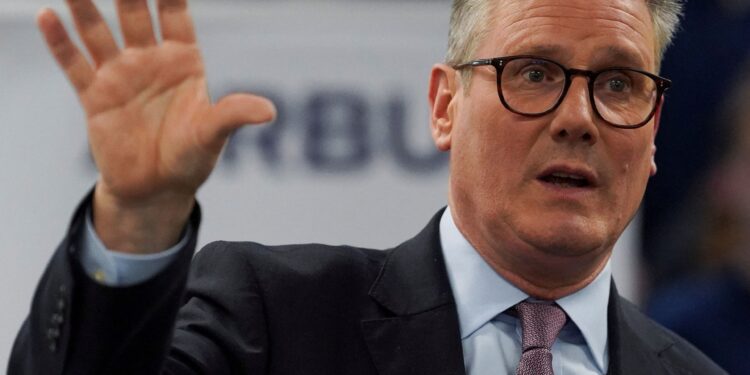Aljazeera.net correspondents
LondonThe Labour Party takes power in Britain after 14 years of Conservative rule, which many agree was disastrous for the British economy, which witnessed violent shocks during their rule, starting with Brexit, through the Covid-19 pandemic, and reaching the economic plan put in place by former British Prime Minister Liz Truss, which cost the British economy the worst decline in the pound sterling in its history.
The Labour Party will have a difficult task in dealing with the economic situation that requires urgent solutions, although British Prime Minister Keir Starmer said that these problems will be solved by building “brick by brick”, as there is no magic and urgent solution to all these problems.
What are the most important economic failures left by the Conservatives?
Former Prime Minister Rishi Sunak promised, among other things, to reduce public debt, but the opposite happened, as debt increased from 64.7% of Britain’s GDP 15 years ago to 96.5% in 2024, the highest level of debt recorded by Britain since 1960.
GDP per capita had been forecast to reach £50,200 ($64,233), up about 35% since 2008, but now stands at £39,400 ($50,414), up just 6% – the slowest growth in GDP per capita since World War II.
According to data from the National Institute of Economic and Social Research, part of the British Treasury, the economic growth curve declined from 3.4% annually between the end of World War II and 1973, to 2.3% until 2008, but since the Conservatives arrived 14 years ago, economic growth has fallen to just 1.2%, before they left the government, leaving the growth rate close to zero.
The British Institute for Public Policy Research notes that public investment, which is a catalyst for the economy, has fallen by more than £500 billion ($639.77 billion) during the Conservative period, and has spoken of Britain entering a phase of “under-investment,” meaning that public investment in infrastructure is not keeping pace with the country’s needs.
According to the American bank Goldman Sachs, the volume of trade exchanges after Brexit declined significantly, and Britain recorded a trade exchange of goods 15% less than the rest of the G7 countries.
With the decline of the economy, wages were greatly affected. After being more than 33% between 1970 and 2007, they froze in 2010 at zero%, according to data from the British Institute for Fiscal Studies.
In 2023, wages in Britain are close to the levels recorded in 2008 during the financial crisis that hit the world, and according to the same source, the current wage growth situation in Britain is the worst since 1815.
The poverty crisis has deepened significantly in Britain over the past 14 years, and there is no better evidence of this than the extent of reliance on food banks, as food banks distributed 100,000 food baskets in 2010, and this number rose to 3 million baskets in 2023.
Is the economy one of the reasons to vote for workers?
Historically, the economy is not the strength of the Labour Party compared to the Conservatives, due to the tendency of the Labour Party during its rule to raise taxes in order to finance public services, but the disastrous results of the Conservatives pushed the British to change, according to observers.
According to an Ipsos poll, 38% of those who voted for Labour said it was because they believed Labour would fix the economy, while 52% said they voted for Labour because they believed the party could fix the health crisis, meaning that Britons voted for Labour more to fix services than for economic reasons.
What are the most important urgent economic issues facing the Labor government?
According to British Prime Minister Keir Starmer, his priority is:
- Restore stability to the economy.
- Restoring confidence in the British economy.
- A tax reform will be announced in October with the announcement of the first budget of the new party era.
- Increase public spending, especially in the field of infrastructure.
- Control the size of borrowing and public debt.
- Maintaining the inflation rate at around 2.2% after reaching its highest level since World War II during the past two years.
What is the economic programme of the Labour Party?
The most prominent features of the Labour Party’s tax policy are:
- His commitment not to increase taxes related to individuals, such as income tax and value added tax.
- Capping corporate taxes at 25%.
- Increase tax revenues by more than £8 billion ($10.23 billion), through a stronger emphasis on curbing tax evasion and closing loopholes in the country’s non-resident tax law, which is expected to raise tax revenues by about £1 billion ($1.27 billion).
The Labour Party also pledged to:
- Create what he called a National Wealth Fund to invest and create about 650,000 jobs in future industries.
- Investing in clean energy.
- Building 1.5 million homes as part of the infrastructure development strategy over the next ten years.
- Recruiting 6,500 new teachers in key subjects.
- Recruiting 8,500 new employees in the health sector.
- Provide 40,000 additional evening and weekend appointments.



